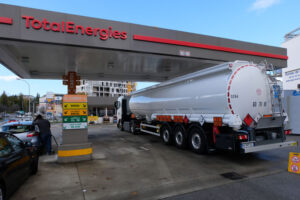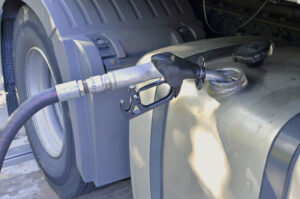When a fleet vehicle is stationary with the engine still running, this is considered idling. The cost of fuel and maintenance related to fleet vehicle idling is a major concern. Break downs, traffic, and unexpected maintenance are all valid reasons for a truck to remain idling. However, when a vehicle’s engine continues to run during a rest stop, this is unnecessarily wasting gas, polluting the air, and costing wear and tear of the engine. According to the U.S Department of Energy, trucks idle on average about 1,800 hours per year, using about 1,500 gallons of diesel, costing truck fleets about $4,000 each year, per truck in gas wasted while in idle. You must know how much time your fleet’s vehicles idle and what it is costing your business in order to protect your fleet’s budget.
Why Fleet Vehicles Idle:
It is normal for a business to schedule a fleet for regular maintenance and repair. This is considered “normal idle time.” It is important to check fleet vehicles regularly to ensure engines are working correctly with no leaks or engine issues. Some other reasons fleet vehicles may idle include:
- Stopped at a rest stop/sleeping
- Warming up the vehicle
- Stopped to use a phone
- Gridlock traffic or toll booths
- Queuing up to load or unload at suppliers’ or customers’
- Stopped to process documentation
All of these are considered valid reasons for a fleet vehicle to remain in idle, but it is important to understand what it is possibly costing your business.
The True Cost of Fleet Vehicle Idling
Every minute spent idling is costly to a business. Not only does fuel and oil waste increase costs, but excessive running time can increase a vehicle’s need for maintenance. Idling also impacts the environment by polluting the atmosphere with carbon emissions.
Cost
A recent study done by Phillips and Termo calculated that if a fleet of 100 trucks idled for two hours per day, 275 days per year, can cost your business up to $165,000 in wasted fuel. Thankfully telematics can easily solve this problem by tracking and monitoring your fleet vehicles. This allows your business to know when excessive vehicle idling is occurring.
Engine Costs
Fuel waste is not the only concern you need to have when it comes to idling. Idling also increases wear and tear on the engine, requiring more maintenance on the vehicle. Idling for one hour, every day, for one year is equivalent to 64,000 miles of engine wear. That can result in costly repairs of up to $9,472 per truck.
Environmental Costs
In 2019 the U.S. Energy Information Administration (EIA) estimated that the transportation sector was responsible for 81% of total U.S. transportation sector CO2 emissions. You can easily make a positive impact on the environment by requiring your fleets to reduce their idle time. In many states such as New Jersey, New York, Massachusetts, Maryland, Vermont, and Hawaii, idling is illegal. Be aware of each State’s idling laws before allowing fleets to drive through.
The Solution: Reduce Fleet Vehicle Idling with Telematics
With the use of telematics, fleet vehicle idling time can significantly be reduced. A telematics system provides fleet managers with tracking information, vehicle location, and engine status. If any safety issues occur within the fleet, dash cameras can provide the first signal of any asset loss with video of the event. Fleet managers are also able to gain insight using telematics to see idling patterns that will allow them to adjust and reduce idle time.
OnTrak Solutions offers a software platform that features live GPS tracking, driving event notifications, and an all-inclusive media center. With OnTraks telematics fleets are able to detect when a fleet vehicle is on, but not moving. This gives insight into the accurate idling time.
Fleet Vehicle Idling Conclusion
Telematic systems provide more than a fleet vehicle’s location and speed. They are also able to provide insight activity reports to track fleet vehicle idling time. Through education and training fleet drivers can easily reduce unnecessary idling. Idling not only causes excessive amounts of CO2 to enter the atmosphere but can cost fleet managers thousands of dollars in repairs. It may not be possible to eliminate idling completely, but by using telematics and being aware of idling patterns, you can easily reduce its impact on your business. OnTrak Solutions provides vehicle technologies that protect your business, improves drive safety, & reduces insurer risk. Visit us at https://www.ontrak-solutions.com/ or call us at (732)-276-5353 to learn how your business can benefit from Telematics.




